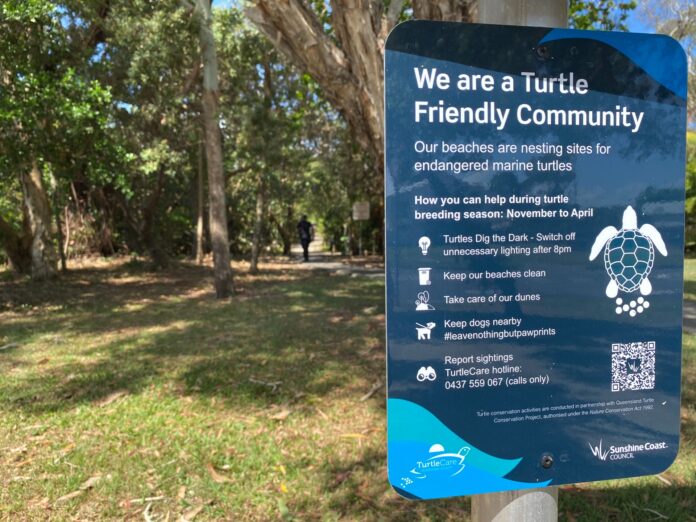A beach advocacy group has called on Sunshine Coast Council to push for all beachfront buildings to have turtle-friendly lighting and for dunes to be ’no-go zones’ during nesting season.
The Beach Matters Group says those changes would increase the survival of thousands of turtle hatchlings each year.
The 7500-strong group has suggested the council embark on a community campaign to educate residents on the benefits of swapping out all lighting facing the beach from bright and white to amber, and turning outside and balcony lights off at 8pm during the November-May season to increase safe passage for nesting turtles and their hatchlings.
Members want the council to consider fining residents who continually fail to comply with the environmental guidelines.
SUBSCRIBE here now for our FREE news feed, direct to your inbox daily.
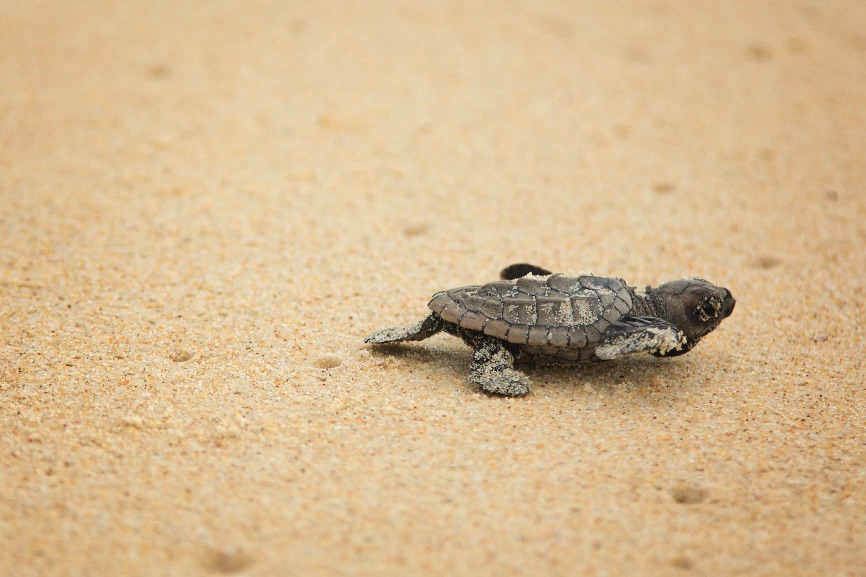
“Most residents are amazing and are involved in the turtle nesting and hatching events each year and understand how important their role is in keeping lights from shining onto the dunes and beach,” a Beach Matters Group spokesperson said.
“There are, however, still a few residences who don’t comply along the beachfront and have bright lights shining onto the dunes, the beach and nesting areas – regardless of being asked to turn them off, close their blinds or switch to amber lighting, which doesn’t interfere with the natural nesting and hatching behaviour.
“Without local knowledge and understanding of how bright lights on their balconies and outside of their houses after 7.30-8pm can cause real problems in the nesting and hatching season, they don’t get what they’re doing wrong. With a high percentage of rentals and holiday letting, it’s up to council to enforce this with property owners and developers.
“Artificial lights at night disorient the hatchlings going from the dune to the ocean, and also the females nesting who move toward the white lights to nest among houses, lifeguard towers and other lit and high-pedestrian areas, rather than be guided by the moon to lay in the safety of the dunes.
“When that happens, it’s up to, and thanks to, trained volunteers acting upon community reporting to carefully move and relocate nests in high-risk areas if they are to have any chance of survival.
“If they go unnoticed or are not relocated within hours of laying, the eggs get eaten by animals or generally don’t survive the conditions where they are laid.
“There are literally thousands of turtle eggs in the dunes at present. As barriers can’t be erected during the day, most of them you wouldn’t even know are there.”
The Beach Matters Group spokesperson said the council was making good progress by changing its lighting to be more turtle-friendly at Point Cartwright and street beachside locations, which had had a significant and positive effect.
“Now we need to really step it up and lift our game to even get close to some of these well-organised and proactive communities elsewhere,” they said.
The spokesperson said the Kawana stretch this season had 36 nests, each with an average of 124 eggs, and some would not hatch until April or May.
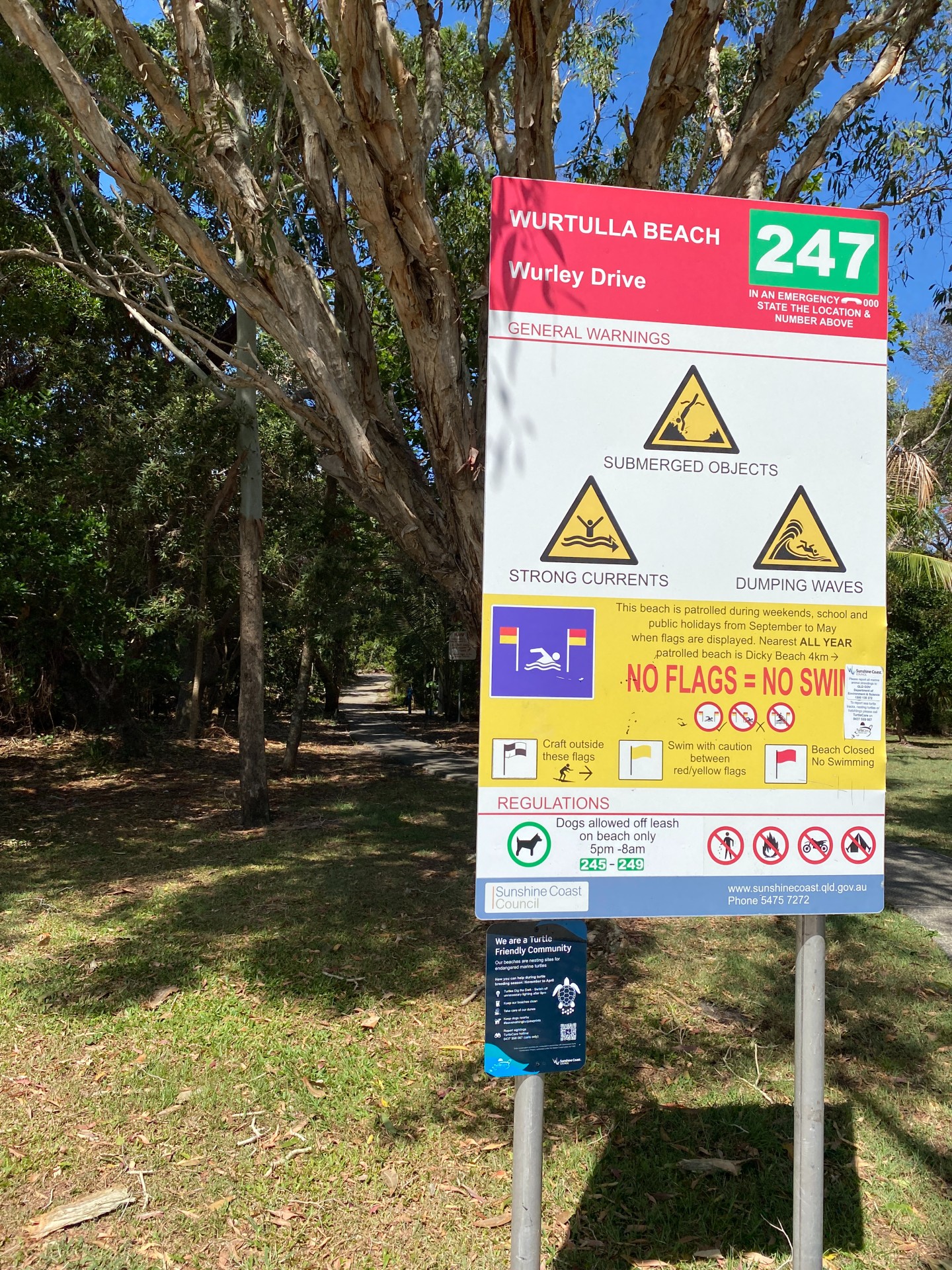
While the Sunshine Coast is vital to overall Pacific loggerhead numbers, other turtle-nesting areas such as Mon Repos near Bundaberg and Townville’s Magnetic Island had been much more “active and proactive” in ensuring the welfare and protection of turtles and hatchlings, and that was reflected in the large number of nests.
The Beach Matters Group wants the council to consider advocating for more signs near dunes known for turtle nesting and to make those dunes out of bounds during the nesting season.
Do you have an opinion to share? Submit a Letter to the Editor with your name and suburb at Sunshine Coast News via: news@sunshinecoastnews.com.au
“There are signs at each access entrance, which is helpful,” the spokesperson said.
“However, there’s no preventative signage oceanside of the dunes in place to remind them to stay on the beach and not go up into the dunes, which is where the nests are.
“Not only is it important to not have the nests interfered with, it’s also important for dune health and prevention of erosion. Making the dunes a ‘no-go zone’ for everything and anyone, except for people undertaking environmental maintenance or protection, for seven months of the year will protect the turtles and give the dunes a chance to revegetate naturally.
“Removing people and animals from dunes during the season eliminates most of the problems that are occurring.
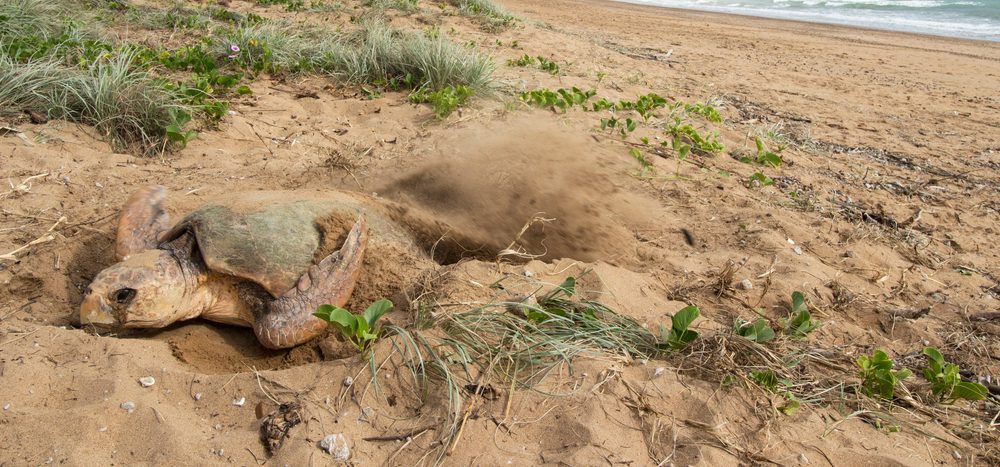
“With the influx of day trippers, tourists and new residents to the area, they are completely unaware of the impact they and their animals have on dunes and the harm in their activities.
“They don’t understand what they don’t know about. Signage and education will encourage dune health, decrease dune erosion, prevent people from sitting in the dunes, erecting sunshades like umbrellas, or dogs digging in or leaving faeces in the dunes, damaging the vegetation or interfering in hidden turtle nests.”
Sunshine Coast Council acting coastal, constructed water bodies and planning manager Kate Hofmeister said a total of 232 signs – on every beach access (BA) from BA68 at Noosa National Park to BA300 at Bulcock Beach – explained how our turtle-friendly community could help protect critically endangered loggerhead turtles during breeding season.
She said nest guards also played a critical role in protecting hatchlings from artificial light and sky glow, as well as forming a safe viewing area for members of the public on busier beaches.
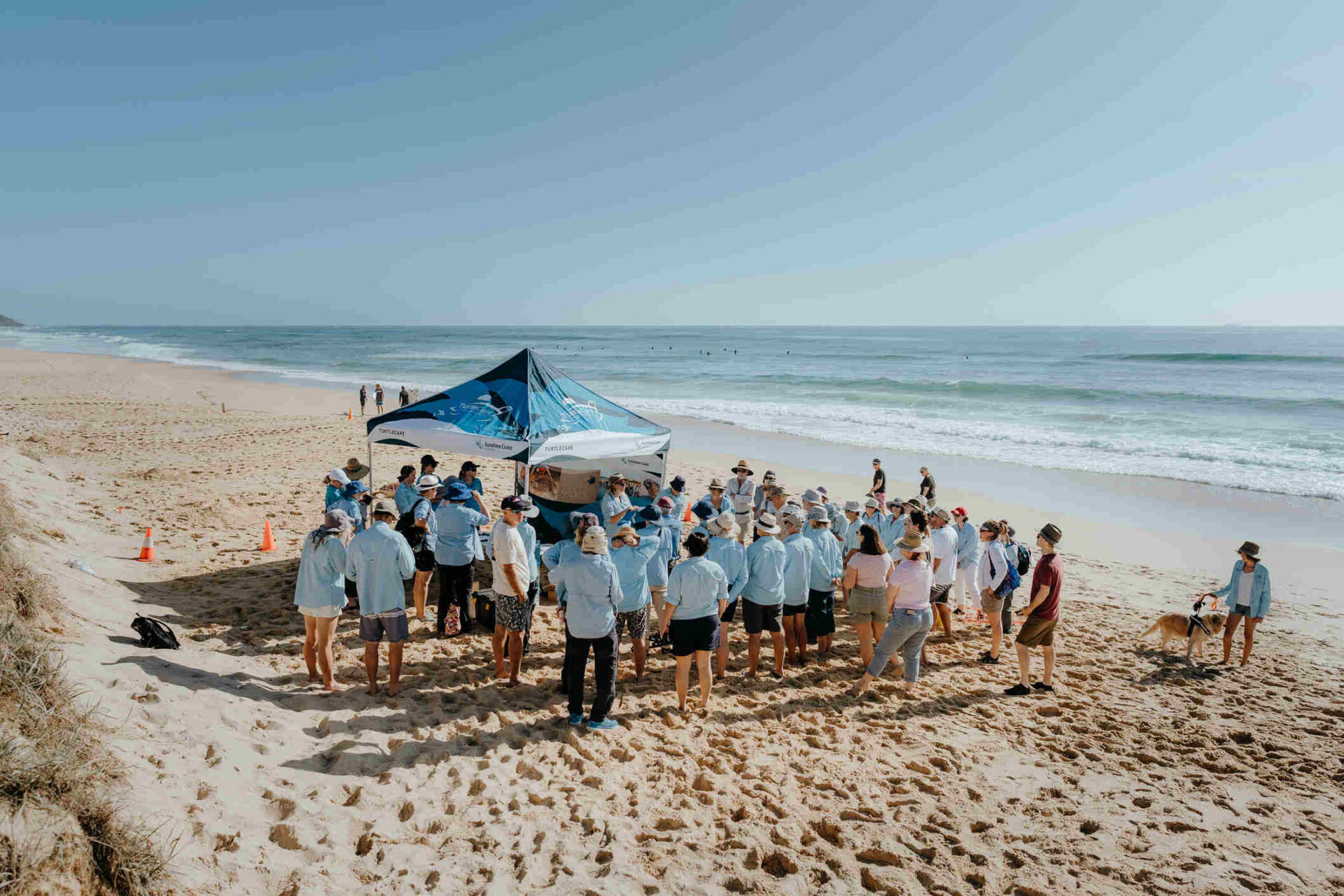
“Our dedicated TurtleCare volunteers put these up and down each evening because the guards present a trip hazard for people on the beach if we leave them there during the day,” Ms Hofmeister said.
“The guards also attract quite a bit of attention, which results in large crowds at nest emergences – which, at its worst, can present a risk to hatchling safety.
“Under our collaborative research partnership agreement authorised under the Nature Conservation Act 1992, we don’t have permission to run guided tours or turtle tourism activities, which is why we don’t want to draw large crowds to nesting sites as it would be unfair to ask our volunteers to undertake control activities in their role as volunteer citizen scientists.
“And sadly, if we leave our equipment on the beach during the day, it is vulnerable to theft.”
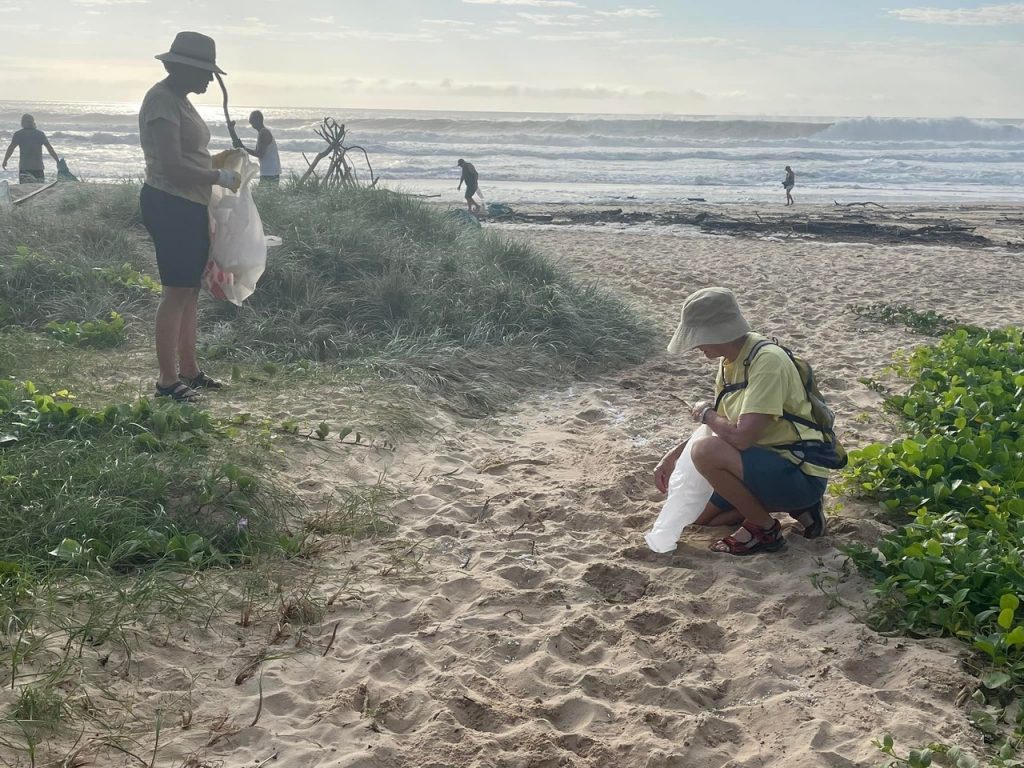
Ms Hofmeister offered these suggestions on how residents could help hatchlings:
- Turtles dig the dark – switch off your outside lights from 8pm as light pollution disorientates turtles and hatchlings.
- Keep our beaches clean.
- Take care of our dunes.
- Keep dogs nearby and leave nothing but paw prints.
- Report turtle tracks, new nests and emerging hatchlings to the TurtleCare hotline or Coolum and North Shore Coast Care.
- For sightings on the southern end of the coast, call 0437 559 067. For sightings from Mooloolaba north, call Coolum and North Shore Coast Care on 0478 435 377.
The Beach Matters Group spokesperson said members advocated for and strongly supported volunteer groups such as TurtleCare and Coolum and North Shore Coast Care, saying our nesting turtle population had become healthy due to their efforts and initiatives of council personnel.
“They are doing an amazing job at monitoring, documenting and looking after turtles nesting, the nests and hatchlings, but we as a coastal community can help and do more to assist their fabulous work,” the spokesperson said.
“And we should do more, given we are fortunate enough to have such an amazing and incredible natural phenomenon right in our own backyard.
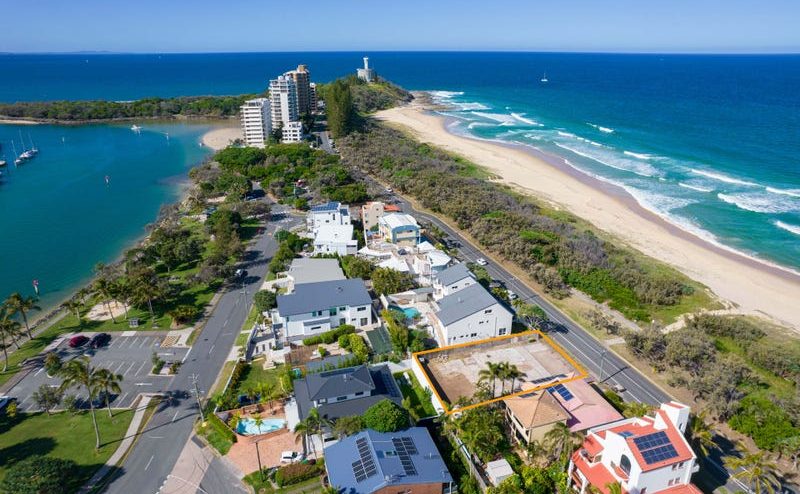
“The Buddina, Warana, Alex, Mooloolaba (and) Yaroomba communities are really active in both dune and turtle protection and in keeping the beach clean in initiatives like the one the Beach Matters has coming up on March 5, which will see members at Sunshine Coast beaches from 7-8am to clean up beaches.
“But litter is still a big problem affecting both ocean and beach health, especially in some other areas like on (Maroochy) North Shore, where a lot of litter originating from the council-owned Cotton Tree Caravan Park continues to be a problem.
“So, this is another area that needs to be looked at, as well as our stormwater drains. Having proper grates on all oceanside community stormwater catchments to prevent micro-plastics and a filtering system to prevent road run-off, rubber, garden and pool chemicals from getting into the ocean will help clean up the environment the turtles call home.”


